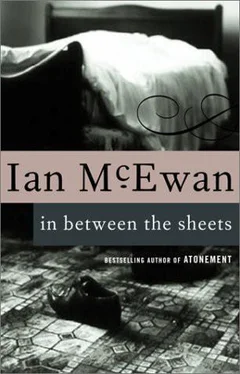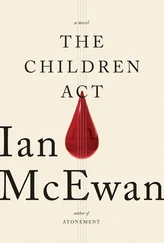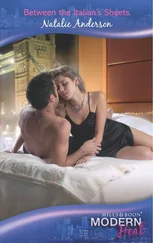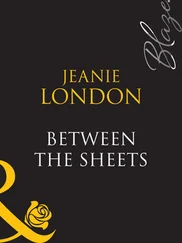I sat down on the edge of the bed and almost immediately stood up again. I went to the balcony to look once more at the foreign city. Out on one of the lawns a small girl picked up a smaller girl and staggered a few steps with her. More futility. I went inside and looked at the alarm clock in the bedroom. Eleven forty. Do something, quick! I stood by the clock listening to its tick. I went from room to room without really intending to, sometimes surprised to find that I was back in the kitchen again fiddling with the cracked plastic handle of the wall can-opener. I went into the living room and spent twenty minutes drumming with my fingers on the back of a book. Towards the middle of the afternoon I dialed the time and set the clock exactly. I sat on the toilet a long time and decided then not to move till I had planned what to do next. I remained there over two hours, staring at my knees till they lost their meaning as limbs. I thought of cutting my fingernails, that would be a start. But I had no scissors! I commenced to prowl from room to room once more, and then, towards the middle of the evening, I fell asleep in an armchair, exhausted with myself.
George at least appeared to appreciate my playing. He came upstairs once, having heard me from the shop, and wanted to see my flute. He told me he had never actually held one in his hands before. He marveled at the intricacy and precision of its levers and pads. He asked me to play a few notes so he could see how it was held, and then he wanted me to show him how he could make a note for himself. He peered at the music on the stand and said he thought it was “brilliant” the way musicians could turn such a mess of lines and dots into sounds. The way composers could think up whole symphonies with dozens of different instruments going at once was totally beyond him. I said it was beyond me too.
“Music,” George said with a large gesture of his arm, “is a sacred art.” Usually when I wasn’t playing my flute I left it lying about collecting dust, assembled and ready to play. Now I found myself pulling it into its three sections and drying them carefully and laying each section down like a favorite doll, in the felt-lined case.
George lived out in Simi Valley on a recently reclaimed stretch of desert. He described his house as “empty and smelling of fresh paint still.” He was separated from his wife and two weekends a month had his children over to stay, two boys aged seven and eight. Imperceptibly George became my host in Los Angeles. He had arrived here penniless from New York City when he was twenty-two. Now he made almost forty thousand dollars a year and felt responsible for the city and my experience in it. Sometimes after work George drove me for miles along the freeway in his new Volvo.
“I want you to get the feel of it, the insanity of its size.”
“What’s that building?” I would say to him as we sped past an illuminated Third Reichian colossus mounted on a manicured green hill. George would glance out his window.
“I dunno, a bank or temple or something.” We went to bars, bars for starlets, bars for “intellectuals” where screenwriters drank, lesbian bars and a bar where the waiters, lithe, smooth-faced young men, dressed as Victorian serving-maids. We ate in a diner founded in 1947 which served only hamburgers and apple pie, a renowned and fashionable place where waiting customers stood like hungry ghosts at the backs of those seated.
We went to a club where singers and stand-up comedians performed in the hope of being discovered. A thin girl with bright red hair and sequined T-shirt reached the end of her passionately murmured song on a sudden shrill, impossible top note. All conversation ceased. Someone, perhaps maliciously, dropped a glass. Halfway through, the note became a warbling vibrato and the singer collapsed on the stage in an abject curtsy, arms held stiffly in front of her, fists clenched. Then she sprang to her tiptoes and held her arms high above her head with the palms flat as if to forestall the sporadic and indifferent applause.
“They all want to be Barbra Streisand or Liza Minnelli,” George explained as he sucked a giant cocktail through a pink plastic straw. “But no one’s looking for that kind of stuff anymore.”
A man with stooped shoulders and wild curly hair shuffled onto the stage. He took the microphone out of its rest, held it close to his lips and said nothing. He seemed to be stuck for words. He wore a torn, muddied denim jacket over bare skin, his eyes were swollen almost to the point of closing and under the right there ran a long scratch which ended at the corner of his mouth and gave him the look of a partly made-up clown. His lower lip trembled and I thought he was going to weep. The hand that was not holding the microphone worried a coin and looking at that I noticed the stains down his jeans, yes, fresh wet vomit clung there. His lips parted but no sounds came out. The audience waited patiently. Somewhere at the back of the room a wine bottle was opened. When he spoke finally it was to his fingernails, a low, cracked murmur.
“I’m such a goddamn mess!”
The audience broke into fall-about laughter and cheering, which after a minute gave way to foot stamping and rhythmic clapping. George and I, perhaps constrained by each other’s company, smiled. The man reappeared by the microphone the moment the last clapping died away. Now he spoke rapidly, his eyes still fixed on his fingers. Sometimes he glanced worriedly to the back of the room and we caught the flash of the whites of his eyes. He told us he had just broken up with his girl friend, and how, as he was driving away from her house, he had started to weep, so much so that he could not see to drive and had to stop his car. He thought he might kill himself but first he wanted to say goodbye to her . He drove to a call box but it was out of order and this made him cry again. Here the audience, silent till now, laughed a little. He reached his girlfriend from a drugstore. As soon as she picked up the phone and heard his voice, she began to cry too. But she didn’t want to see him. She told him, “It’s useless, there’s nothing we can do.” He put the phone down and howled with grief. An assistant in the drugstore told him to leave because he was upsetting the other customers. He walked along the street thinking about life and death, it started to rain, he popped some amyl nitrate, he tried to sell his watch. The audience was growing restless, a lot of people had stopped listening. He bummed fifty cents off a bum. Through his tears he thought he saw a woman aborting a fetus in the gutter and when he got closer he saw it was cardboard boxes and a lot of old rags. By now the man was talking over a steady drone of conversation. Waitresses with silver trays circulated among the tables. Suddenly the speaker raised his hand and said, “Well, see you,” and he was gone. A few people clapped but most did not notice him leave.
Not long before I was due to leave Los Angeles George invited me to spend Saturday evening at his house. I would be flying to New York late the following day. He wanted me to bring along a couple of friends to make a small farewell party, and he wanted me to bring along my flute.
“I really want to sit,” said George, “in my own home with a glass of wine in my hand and hear you play that thing.” I phoned Mary first. We had been meeting intermittently since our weekend. Occasionally she had come and spent the afternoon at my apartment. She had another lover she more or less lived with, but she hardly mentioned him and it was never an issue between us. After agreeing to come, Mary wanted to know if Terence was going to be there. I had recounted to her Terence’s adventure with Sylvie, and described my own ambivalent feelings about him. Terence had not returned to San Francisco as he had intended. He had met someone who had a friend “in screen writing” and now he was waiting for an introduction. When I phoned him he responded with an unconvincing parody of Semitic peevishness. “Five weeks in this town and I’m invited out already?” I decided to take seriously George’s wish to hear me play the flute. I practised my scales and arpeggios, I worked hard at those places in the Sonata No. 1 where I always faltered and as I played I fantasized about Mary, George and Terence listening spellbound and a little drunk, and my heart raced.
Читать дальше












